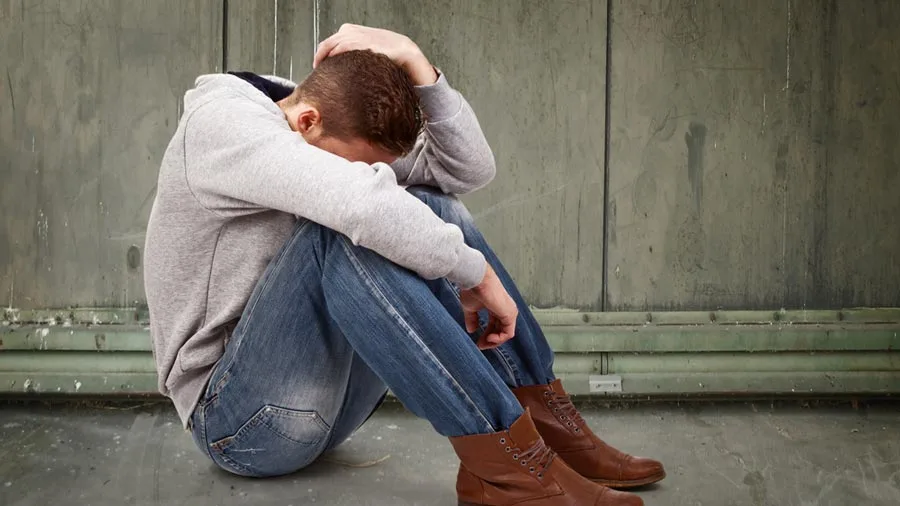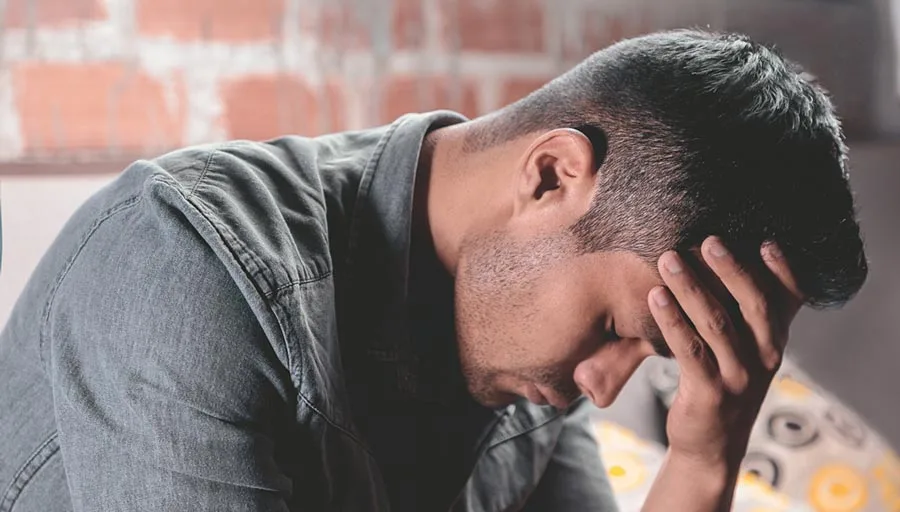A Resource from Catalina for the Dually Diagnosed
What are co-occurring disorders? This term is used to describe two or more disorders that a person experiences at once. It’s not uncommon for individuals in treatment for substance use disorder to find that they also have an underlying mental health issue. In these cases, substance abuse may even begin as a form of self-medication for the symptoms of mental illness.
The struggle with co-occurring disorders is that one disorder is sometimes overlooked. When this happens, the recovery process is harder because there isn’t adequate support in place. There’s also a higher chance of relapse without the proper support for mental illness.
If this sounds familiar from your own life, or your loved one’s attempts at getting help in the past, you have come to the right place.
Our team at Catalina Behavioral Health has extensive experience in treating dually diagnosed clients and helping achieve lasting recovery. Catalina is Joint Commission accredited and can help you or your loved one put a treatment plan in place that addresses all co-occurring disorders.
Keep reading to learn more about co-occurring disorders and how they affect treatment and recovery.
What Are Co-Occurring Disorders?

Put simply, co-occurring disorders are two or more disorders that a person experiences at once. In individuals struggling with substance abuse disorder, there is a heightened risk of mental illnesses. This is because the connection between substance use disorders and mental disorders is a two-way street.
It’s not uncommon for individuals struggling with substance abuse to experience depression, anxiety, eating disorders, or other mental health conditions as a result of addiction. These mental illnesses can also occur as a result of the detox and withdrawal process from certain substances.
Additionally, the chemical changes that happen in the brain from substance use increase the likelihood of experiencing psychiatric symptoms following substance abuse.
Get Help for Co-Occurring Disorders – Reach Out Now!
What Does the Substance Abuse and Mental Health Services Administration Say?
According to SAMHSA, co-occurring disorders are prevalent in individuals struggling with substance or alcohol use disorder. The Substance Abuse and Mental Health Services Administration surveyed in 2021 and found that an estimated 9.2 million adults have co-occurring disorders in America. While this is not limited to substance use disorder occurring at the same time as another mental health condition, this combination is common.
Even in individuals who are not diagnosed with substance use disorder, it’s common to use alcohol, tobacco, marijuana, or other illicit drugs as a means to cope with symptoms. When people self-medicate like this, though, they increase their risk of developing substance use disorders.
What Are the Challenges of Diagnosing and Treating Co-Occuring Disorders?
The biggest challenge associated with recovering from addiction with a co-occurring disorder is an inaccurate diagnosis which then leads to an ineffective treatment plan for the person struggling. Without proper diagnosis, it’s impossible to treat alcohol or drug use alongside common co-occurring disorders.
This is why it’s so important to work with a clinician familiar with alcohol and drug dependence as well as other psychiatric disorders that might occur. Being able to identify and capably treat co-occurring disorders is critical for relapse prevention.
Common Co-Occurring Disorders with a Substance Use Disorder

Again, according to the Substance Abuse and Mental Health Services Administration (SAMHSA), the conditions most likely to occur alongside drug use or alcohol use disorder include:
- Major depression or major depressive disorder
- Anxiety disorder
- Various mood and personality disorders
- Bipolar disorder
- Conduct and behavioral disorders
- Attention deficit hyperactivity disorder
- Post-traumatic stress disorder
- Schizophrenia
- Intellectual disability
These common co-occurring disorders can occur as a result of using drugs or alcohol, but often they exist beforehand. It isn’t uncommon for clients to use alcohol or drugs to cope with the symptoms of these mental health issues.
In some cases though, like with substance-induced mood disorder, substance use contributes to the development of the mental health disorder.
Is it Common for People with Addiction to Have a Co-Occurring Mental Illness?
Yes, it is common for individuals with substance use disorder to have co-occurring mental health conditions. Some people turn to alcohol, marijuana, or other drugs to self-medicate psychiatric illness.
Additionally, mental health issues and substance abuse disorders often share similar risk factors. For example, environmental factors can influence both substance use and common co-occurring disorders.
Schizophrenia
It’s not uncommon for individuals with a serious mental illness like schizophrenia to use substances as a way to numb symptoms. However, using certain substances can trigger paranoia and make symptoms of schizophrenia worse.
Drug or alcohol abuse is common in individuals with schizophrenia. An estimated 47% of individuals diagnosed with schizophrenia will also need substance abuse treatment at some time in their lives.
The link between schizophrenia and marijuana, particularly for young people, has been studied and established, though whether it is causal or simply worsens the condition is not yet certain.
Post-Traumatic Stress Disorder

Post-traumatic stress disorder often exists before an individual’s substance use. It is the result of experiencing some type of trauma, which is not limited to childhood trauma or abuse, being in a severe car accident, experiencing violence during wartime, or being the victim of a crime or assault.
Individuals who do not resolve their trauma might turn to alcohol or other drugs to numb what they went through. Identifying and treating this underlying trauma is paramount to overcoming drug or alcohol addiction in these cases.
Anxiety
Using certain drugs, particularly methamphetamine, and other stimulants, can make anxiety worse. Some people also experience anxiety when they are withdrawing after long-term drug abuse.
Additionally, some people use substances to self-medicate their anxiety. When self-medicating a mental health disorder, it’s easy to develop substance use disorders because your body and brain become dependent on the substance to feel “normal”.
Obsessive Compulsive Disorder
While obsessive-compulsive disorder was once classified with anxiety disorders, it now has its own classification in the Diagnostic and Statistical Manual. Individuals dealing with this mental health disorder might use drugs or alcohol to numb their symptoms.
However, compulsions associated with this mental illness might cause an individual to excessively use drugs or alcohol.
Mood and Personality Disorders: Depression and Bipolar Disorder
Major depressive disorder, bipolar disorder, and substance-induced mood disorders can all be affected by substance use. Like with other mental disorders we’ve discussed so far, self-medication can be a risk factor for developing substance use disorders.
Additionally, using drugs or alcohol to cope can make depressive disorders and mood disorders worse. Heavy or frequent substance use affects your body’s ability to produce serotonin, dopamine, and other neurotransmitters that affect mood.
Even though using substances may make you feel better in the short term, they can make anxiety disorder, depressive disorders, and any other mental health problem worse in the long term.
How to Get Help for a Dual Diagnosis

With co-occurring disorders, the best course of treatment will be unique to your specific conditions. At Catalina, we realize that our clients are unique individuals who require specialized treatment for co-occurring disorders and a plan built around their specific needs.
This is why we can help you create an individualized, integrated treatment plan that treats all aspects of your co-occurring disorder.
Getting an Accurate Diagnosis for Comprehensive Treatment
Many addiction treatment centers focus solely on treating substance use disorders, overlooking mental health disorders that may have contributed to drug and alcohol abuse in the first place.
This causes a heightened risk of relapse for those with co-occurring mental disorders because it doesn’t address one of the underlying causes of addiction.
What to Expect for a Dual Diagnosis Intake Appointment
At Catalina, treatment begins with an intake appointment and assessment where you’ll be asked questions about alcohol and drug abuse habits. You’ll also be asked questions regarding medical history, genetic factors, personal background, environmental factors, and previously diagnosed physical ailments or psychiatric disorders.
Discussing Symptoms
If it’s believed that you are dealing with mental health issues like anxiety disorders, eating disorders, depression, psychosis, or other mental health disorders, you may also be asked about symptoms. It’s important to be honest about your experience. All the questions that you are asked will guide the professional doing your intake to an accurate diagnosis.
Get Effective Dual Diagnosis Programs – Call Now!
Developing a Holistic Treatment Plan
Following an intake appointment, one of our trained clinicians will guide you in creating a treatment plan that works for your specific combinations of disorders.
For those struggling with severe mental health disorders or detoxing from substances, inpatient treatment might be recommended.
What Dual Diagnosis Inpatient Treatment Looks Like
At Catalina, our integrated treatment process involves detoxing from substance use and learning skills to help you deal with life’s stresses and triggers. It will also involve mental health support for any co-occurring disorders.
Treatment for mental health disorders might include prescribing medication, therapy, or determining another effective course of treatment for your substance and/or mental disorder.
Other Options for the Treatment of Co-Occurring Disorders
If inpatient treatment is not recommended, there are many other options for treating co-occurring disorders. Some people attend partial hospitalization or intensive outpatient treatment programs, which involve attending courses for several hours per day.
Other options include cognitive behavioral therapy or dialectical behavior therapy. Both of these integrated treatment plans help alcohol and drug addiction as well as other mental illnesses.
Developing a Support System
Other treatments might include group or individual therapy, setting up a psychiatry appointment for medication, and finding support for addiction post-treatment. By offering comprehensive plans tailored to the individual client, Catalina can help you turn your life around.
Our integrated treatment approach addresses all aspects of sobriety and mental health for better quality of life.
Will Addiction Treatment Help with Mental Disorders?

Seeking treatment for substance use disorders can improve an individual’s mental health. However, addiction treatment is not going to solve underlying mental health disorders alone.
It’s important when seeking dual diagnosis treatment that each co-occurring disorder is addressed on its own. Certain types of therapy are going to benefit both substance use disorder and underlying mental illness.
Will Treating Mental Illness Benefit Substance Use Disorder?
Yes, treating any underlying mental health disorder you may be struggling with can help individuals struggling with substance use disorders. This is especially true for individuals who may have been self-medicating their co-occurring disorder by using alcohol or illegal drugs.
That being said, mental health treatment does not guarantee sobriety on its own. Maintaining sobriety is a long road that also requires a commitment to wellness, better lifestyle habits, and learning to cope with triggers and cravings. Positive support is also instrumental in long-term recovery.
We Accept Most Major Insurance Providers – Call Now!
Get Support for Co-Occurring Disorders at Catalina Today
Regardless of your diagnosis, you can find treatment for mental illness and substance use disorder at Catalina Behavioral Health. We specialize in treating mental health and substance-related disorders, even when they are co-occurring.
Call us to learn more about the intake process today. Whether you are aware of your diagnosis or need an evaluation, we can assist you with the next steps. From there, we’ll work together to find an effective course of treatment for co-occurring mental health problems.
You don’t have to go it alone – reach out to find out how we can help you today!





